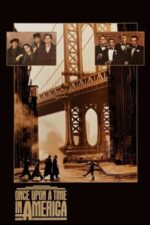When Power Goes Sour: Exploring Corruption on Film
Isn't it fascinating how often we’re drawn to stories about corruption? Not just the big, Watergate-style scandals (though those are certainly compelling!), but the quiet, insidious kind that eats away at institutions and relationships from within. It’s a theme as old as civilization itself, and cinema has always been a powerful mirror reflecting its ugliness – and sometimes, even offering a glimpse of hope in fighting it.
What is corruption, really? It's more than just breaking the law; it's about abuse of power, betrayal of trust, and the slow erosion of ethical principles for personal gain. And film offers so many nuanced ways to explore that. Think about "Moscow 1996, Vote or Lose!" – a fascinating look at how political maneuvering and behind-the-scenes deals can shape an entire nation's destiny. It’s not necessarily about outright illegality (though there were likely plenty of questionable tactics!), but the bending of rules and exploiting vulnerabilities to maintain power. That sense of precariousness, that feeling that everything is built on a foundation of shifting sand…that’s corruption in its own way.
Then you have films like "Best Friend," where the seemingly mundane act of surveillance slowly reveals a web of secrets and potential wrongdoing within a politician's family. The discomfort comes not just from the invasion of privacy, but from the creeping suspicion that something isn't right – that appearances are deceiving. It’s a modern take on classic noir tropes, playing with our anxieties about power and influence in an age of constant surveillance.
What I find particularly compelling is how corruption manifests differently depending on the scale. "The G" offers a heartbreakingly personal story of elder abuse and financial exploitation, highlighting how vulnerable individuals can be preyed upon by those entrusted to care for them. It’s a stark reminder that corruption isn't always about grand conspiracies; sometimes it's about quiet cruelty and the systematic stripping away of dignity. I remember seeing something similar play out in real life with my grandmother – the feeling of helplessness when someone you trust betrays your faith is truly devastating.
And then there are films like "Hemet, or the Landlady Don’t Drink Tea," which takes a more surreal and psychological approach. The landlady's manipulation isn’t just about financial gain; it’s about control, dominance, and the perverse pleasure of wielding power over others. It taps into our primal fears of being trapped and exploited, blurring the lines between reality and paranoia.
Ultimately, films exploring corruption aren't just cautionary tales. They force us to confront uncomfortable truths about ourselves and the systems we inhabit. They ask: What would I do? How far would I go to protect those I love or achieve my ambitions? And perhaps most importantly, they remind us that even in the darkest of times, there’s always a flicker of hope – a chance for justice, for redemption, and for rebuilding trust.
What films about corruption have really stuck with you? Let's chat!







































